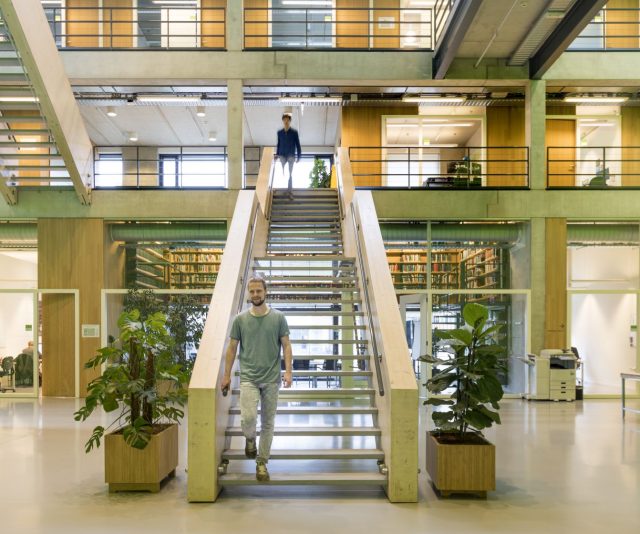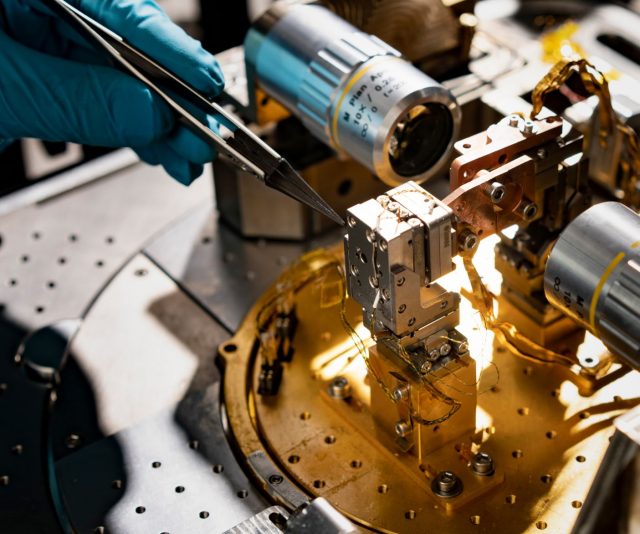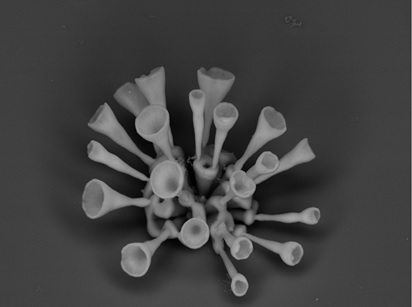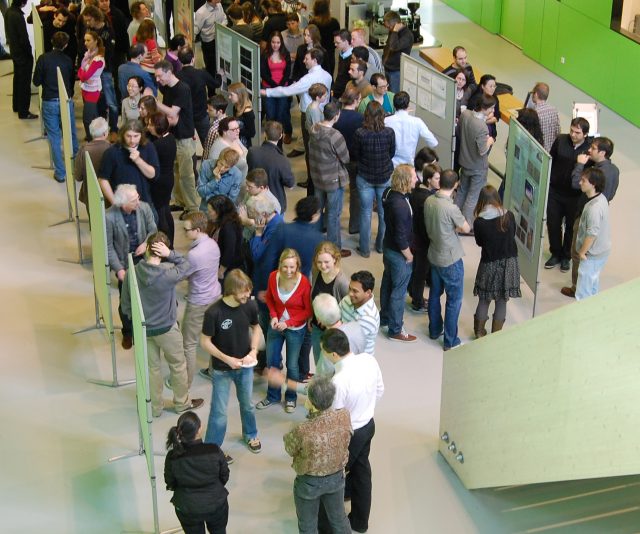
Research

Physics of functional complex matter
Researchers at AMOLF investigate the fundamental relationship between the architecture and interactions of complex molecular and material systems, ranging from nanophotonic structures to multicellular organisms, with the goal to understand their properties and functions. AMOLF also aims to initiate excellent new research in this field in The Netherlands. The obtained knowledge and insights are used to create novel functional materials and to find new solutions to important societal problems. The research program of AMOLF comprises the following three strongly connected research themes: Sustainable Energy Materials, Information in Matter, and Autonomous Matter. The research in these themes is strongly interdisciplinary in character, and is supported by four disciplinary research centers.

Sustainable Energy Materials
The overarching goal of the Sustainable Energy Materials theme is to use fundamental insights in (nano)photonics and (nano)materials to efficiently convert sunlight to electricity, chemicals, fuels, light and heat. A key unifying theme in all these solar energy conversion processes is that they require exquisite control over both light and matter at nanometer length scales and ultrafast (fs-ns) time scales. We have the ambition to design and predict where energy flows and how it is converted in artificial photosystems to these different types of useful products. The Sustainable Energy Materials department consists of groups from the centers for Chemistry & Spectroscopy and Nanophotonics.

Information in Matter
The AMOLF Information in Matter theme aims to advance our understanding of the fundamental physical mechanisms of information gathering, transport and processing in inanimate and living matter. Since information always resides in physical systems, its creation, processing, preservation and removal are bounded by the laws of physics. We aim to push the design and limits of future, unconventional, information technologies, and to explore new paradigms such as learning and adaptive materials.
Understanding the general limits and design principles of information in matter requires concepts that span disciplines, such as non-linearity, reciprocity and time-reversibility, quantum entanglement, cooperativity, noise, non-equilibrium stochastic thermodynamics, and learning. The AMOLF research department of Information in Matter brings researchers from different disciplines together, addressing shared questions about the limits of information in matter in diverse physical systems, ranging from biological systems to mechanical metamaterials, to classical and quantum nanophotonic systems

Autonomous Matter
The aim of the Autonomous Matter department is to elucidate the fundamental principles of autonomy within chemical, biological and mechanical systems, and to create a new class of material systems that perform complex functions in self-organized fashion. Topics include the spontaneous formation of micron-scale shapes by out-of-equilibrium chemical reactions, immune cell recognition by higher-order protein patterning, the formation of miniature organs by the differentiation and spatial organization of stem cells, and modular robotic systems that learn from their environment. A general question that drives the research is how the interplay between local phenomena such as chemical reactions, force generation, stochastic motion, energy consumption, mechanical instabilities, coordinated assembly and destruction can give rise to autonomous functionality.

Research Expertise Centers
AMOLF’s three research themes span multiple complementary research disciplines. The role of our research centers is to push the frontiers of these disciplines. To do so, they continuously develop new theoretical and experimental capabilities. The centers also provide a stimulating environment for the education and training of young researchers. Together, the research areas represented by the centers form the foundation for AMOLF’s research themes.
Read more about research centers:

